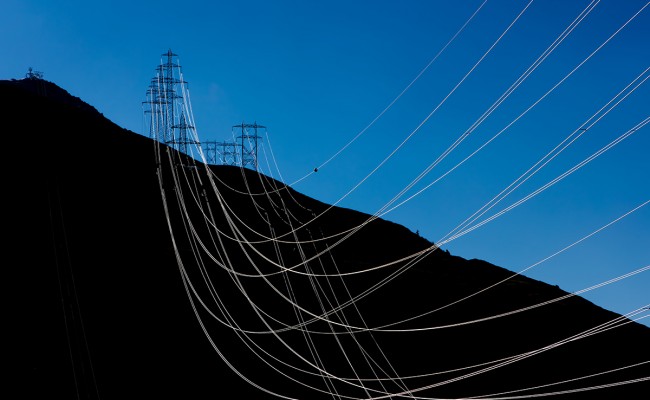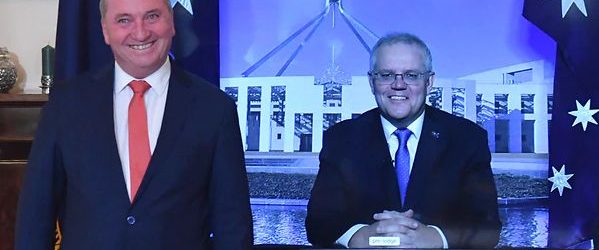A man used LinkedIn to ask me out on a date.
A former colleague of a colleague requested to connect with me on the site. Looking to expand my professional network, I accepted the invitation. Within minutes I received a comical ‘your pretty’ through the platform’s messaging service. It was followed quickly by the message ‘want to get a drink later’ with two questions marks and a perfunctory smiley face tacked on the end. I was understandably caught off guard by the nature of the request, but mostly by the platform on which he chose to make it. LinkedIn, with its corporate hashtags and business etiquette, is supposed to be professional networking space.
Was I supposed to flirt back? Or send through my resume and three references? I’m a team player but in what context? I stared at the message as it sat at the top of my inbox among job offers, networking opportunities and Premium Account offers. Unwanted online solicitation isn’t a new concept. Vulgar, rude, more graphic messages have been sent my way. I usually see them, delete them and carry on with my day. Women are so acclimatised to the digital advances of men, that unwanted sexual aggression is frequently shrugged off when the abuse is word processed.
I have become desensitised to the world of direct message dick pics and X-rated introductions – but this was different. The clerk’s proposal wasn’t rude or overtly sexual, it was surprisingly courteous (see: smiley face). If he had sent the message on Tinder, Bumble or even Facebook, I likely wouldn’t be writing this essay. I may be too busy drinking with the clerk or writing the essay I planned originally entitled ‘Leave Ross Alone – An Analysis of Chandler Bing, the Original Fuckboy Friend’. But he chose LinkedIn for his flirtation and it left me questioning the parameters and limitations for online love.
The process of selecting and securing a partner has never been more automated. Dating apps have codified human attraction and curated their platform accordingly. They rely on algorithms, that sort through profiles to present you with a smorgasbord of potential partners to browse through and select at your own leisure. This ability to swipe, scroll or tap your way through hundreds of possible life partners, has simplified one of the fundamental prerequisites of existence: the sorting of people into pairs to further the human race. Dating apps facilitate the entire process, expanding the pool of possibility and taking chance out of the equation. Tinder boasts 26 million matches per day on the app, creating 26 million prospective relationships with 26 million possible children or more. It’s efficient, portable and essentially limitless. In retrospect, leaving the furtherance of our species in the hands of happenstance seems reckless. Blind dates, parental set-ups, late nights at the office, happy hour at the Pig & Whistle and eye contact across a crowded room – these ‘meet cutes’ often formed the bedrock of dating. That was until the dot-com boom of 2000, when the dating game went digital. From Match.com and JDate through to eHarmony and Ashley Madison and all way to 2013 when Tinder launched on smartphones, the internet changed dating forever.
I grew up wedged in the middle of this revolution. Growing up, online dating was for losers. It was for sad divorcees and desperate nerds. By the time I graduated high school eHarmony advertisements were flooding late night television and more people were beginning to find their match on the web. In my second year of university, if you weren’t dating online, you simply weren’t dating. Everybody was on Tinder. The entire town were swiping each other left or right and in a town of 170,000 the app soon ran dry. My parents, having watched too many episodes of 60 minutes, warned me against the scene. They told me warming stories of meeting people in university lectures and coffee shops. But lectures are virtual now, and I can’t remember the last time I looked up from my phone while waiting for a latte. Why limit yourself to the talent of your local brunch spot when you can pick up city wide? I had an abundance of choice, and the easier online dating became the more reluctant I was to search for love offline.
Historically, choice of life partner was usually limited by class, location and ‘parental diktat’. The existence of ‘romantic love’ stood secondary to social and familial standards, religious beliefs, and a pressure to procreate (within wedlock). Geography and society thwarted the notion of ‘love’ for centuries, dismissing love based on attraction and affection for a more constructive love based on usefulness and proximity. Relationships were based less on a mutual affinity for Mexican food and Game of Thrones but more on money, fertility and keeping up appearances. This notion slowly died out making room for the world of dating today, in which a male friend of mine dumped a girl after two dates because she said Interstellar was ‘only okay’. Planes, trains and automobiles increased the radius of potential spouses measurably. Cities got denser, schools became co-ed and sexual liberation became increasingly liberated with every passing decade. Then the internet happened, tearing down any remaining parameters and expanding the sexual market on a global scale. Freed from geographical and societal limitations, a new difficulty surfaced: how do I know if they’re genuine? How do I know if they’re available? What if they reject me? Swipe left for no and right for yes, two yeses and you’ve got yourself a match – it was a simple but extraordinarily effective idea that quickly made Tinder the kingpin of digital dating. With this newfound power, my generation of anxiety-ridden millennials could pursue love without the pulse-quickening palm-sweating horribly embarrassing task of actually asking someone out face to face. We cosied up in our profiles with their flattering photos and calculated bios and ‘dated’ from the comfort of our own spaces.
With geography, society and rejection out of the way, online love was limitless and beginning to infiltrate all facets of the internet. As with almost every human invention, if possible, it will be used to watch, discuss, aid or procure sex. This means that the line between dating apps and conventional social networking apps has blurred – now, almost any platform with a chat function is inevitably being used as a dating service.
In Zuckerberg’s latest offering ‘Facebook dating’, users can ‘crush’ on one another and be notified of any reciprocated interests. Spotify offshoot ‘Tastebuds’ allows users to match and chat based on the music they listen to. With Uber love stories, Instagram hook-ups and marriages born from the world of online scrabble mean that romance is no longer exclusive to Tinder. The language of love is spoken through likes on Instagram posts, views on Snapchat stories and the dreaded read receipt on Facebook messenger.
And despite its professional intentions, LinkedIn does function in the same way. It acts as an avenue for information and connection in the same way that dating apps do. You connect, communicate and organise to meet. The primary difference being that you are searching for career advancement and business contacts in lieu of love and fumbly first-time sex. However, employment matchmaking is still matchmaking. It’s just salary over sex, income over orgasm – you get the picture. I’m not the first to be propositioned on the site and I won’t be the last.
This evolution of modern romance and social networking means you don’t have to download Tinder or Bumble to experience the world of online dating. Our current reality is one where half the apps on your phone can be used as a vehicle for sex – and women are feeling suffocated.
Despite the details omitted in one’s LinkedIn account (there’s no info on relationships status, though some users add it under ‘personal details’, or sexual orientation), people are still using the site to secure dates because of the valuable information it does provide. Through LinkedIn you can see if a person is university-educated, employed, charitable, successful and/or skilled. In comparison, dating apps provide limited information about a potential mate, only showing their first name, job and whether they’ve been to Coachella (much of which can’t be verified). But the difference isn’t in content – it’s in context. Reimagining the scenarios in real life produces two starkly different realities. Being sexually propositioned on Tinder is akin to being asked for sex at a singles party. The same situation on LinkedIn reads like a colleague approaching you in the mail room and asking to fuck you on the copier. By turning LinkedIn into a tool for sex, men have invaded yet another online space, one where women were just going about their business.
With every app and website holding the potential for uninvited sexual advances, women are running out of places to go without being harassed. The clerk has turned the networking site into another battlefield – and, as with so many other spaces, the onus now falls on me to be wary of what I post and who I interact with. It’s my job to block, block, block like a demented chicken.
I responded to the clerk: is this is a professional drink? ‘It can be whatever you want it to be,’ he said, this time with a winky face. A fucking winky face.






